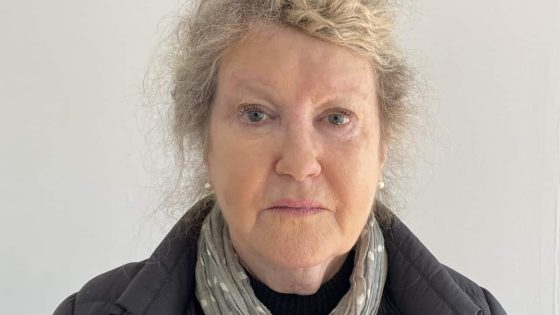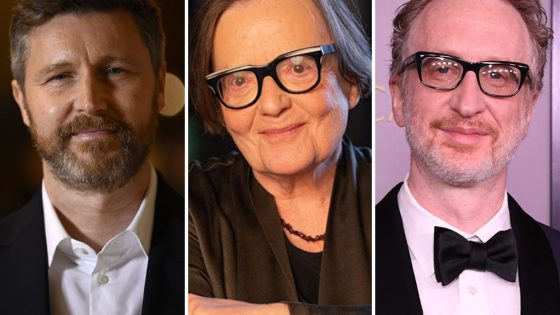From skeletons in the closet to little, white lies, almost all of us have something we conceal. In this episode, Insight explores the costs and gains of mistruths, and whether honesty is the best policy. Watch Secrets and Lies on
After giving birth, I never got to hold my baby.
I didn’t even get to find out the sex.
My baby was taken and I was left alone, lying on a table in the hospital.
I remember trembling with cold, fear and helplessness. Even now, when I think back to that day in the 1970s, I still become cold and start shivering uncontrollably.
As I lay there bleeding, crying and shivering, a doctor went past the doorway. He asked if I was alright and I shook my head between sobs.
I remember him stepping out of the doorway and shouting down the corridor for someone to come and clean me up.
That was the only care or kindness I remember.
The shame of an unmarried mother
Months before, I had experienced my first love.
I’d gone to British Columbia in Canada to work as an au pair. The family had horses, so I was also tasked with looking after the horses, exercising them and mucking out stables.
The property next door had a track I could use when I was riding the horses. The family had a son who was quite a bit older than me, and we started a relationship.
Diane became pregnant with her son while working as an au pair in Canada. Source: Supplied
When he was in California I went to visit him and was late returning to work. When I got back my bags were packed, I’d lost my job and my visa, so I decided to go home.
I didn’t know I was pregnant.
Once back in Australia, I started a job working for another family with horses.
When I finally discovered I was pregnant, I felt ashamed, and saw myself as a Catholic girl who had sinned. I didn’t tell anyone, not even the doctor who owned the property, and not even my family.
When I went into labour and everyone realised what was happening, I was taken to hospital. As an unmarried mother, I had no idea what was going on behind the scenes to manage me.
In the hospital, someone later told me I’d had a boy and he’d died.
I was presented with discharge papers that I had to sign before leaving the hospital.
After I returned to work, nobody spoke about what had happened to me and after a time, I shut down emotionally and tried to move on with my life.
Never did I expect that years into the future, my child would reach out to me.
‘Not discharge papers but adoption papers’
Four decades after that horrendous night in the hospital, I received an email from a man who said he thought I might be his mother.
I was in shock; I had no idea this child existed.
It was only then that I realised that the papers I signed were not discharge papers but adoption papers. That the hospital had lied to me because I was an unwed mother.
I had no idea this child existed.
Diane Sheehan
I have now learned that I was one of around 250,000 unmarried mothers in Australia who were forced, coerced or pressured to give up their babies, with most forced adoptions occurring between 1950 and 1975.
My son and I didn’t speak before we met. We communicated through emails, with the help of my counsellor, to organise a meeting.
‘Indescribable joy’
After we agreed on a date, I was overcome with anxiety. I had an underlying sense that I had no control over what could happen, my life was being exposed, and the reality I was facing may not be as I hoped.
I flew by myself to meet him. He was waiting at the airport with a beautiful little bouquet of white flowers, and I fell into his arms and sobbed.
The intensity and joy of the moment was indescribable.
This was my son.
Di says the moment she met her adult son for the first time at an airport she felt “indescribable” joy. This picture was taken on that day. Source: Supplied
We sat in the airport cafe and talked before driving to his home to meet my daughter-in-law, grandson and granddaughter. We talked and talked, ate together and began to share our life stories.
Shortly after that first meeting, they flew up to meet my other two children. It was a happy and relaxing family time.
Since then, we have visited each other many times, we catch up regularly and have included each other in important family celebrations.
Complex emotions
It’s been an absolute joy having my eldest son, my daughter-in-law and my grandchildren in my life.
I’ve had to accept that I can’t make up for the 40 years we both missed out on, and developing our relationships is a work in progress.
As young mothers, we were treated appallingly, but I have since found out that my son’s adoptive parents were also traumatised.
When they were notified of his birth, they were told he may have been born with hydrocephalus (water on the brain) and may die or have a mental disability, and they could have another baby if they preferred.
They chose to keep the baby they were assigned, and he was in fact perfectly healthy.
They were also told my son had to be clean and fed well because there would be periodic inspections, and if they weren’t looking after him, he would be taken away. But there were never any visits.
They were told other lies, that his birth mother — me — wanted him to be given a certain name and raised in the Catholic Church, neither of which was true. They didn’t comply.
Di says she’s grateful her son was raised in a loving home, though she’s still processing the pain of missing out on so many decades with him. Source: Supplied
I first met my son’s adoptive parents at my grandchild’s end-of-year school concert, and they thanked me for giving them a family. It was so touching I had to use all my strength not to break down.
I’m grateful my son was raised in a loving home, though I’m still processing my pain and trauma.
The young women and children impacted by the lies of the forced adoptions have each suffered in their own way. Many developed a resilience, many never recovered, and many didn’t survive.
My own experience has impacted me greatly. This greatest of lies has led me to always be vigilant, strive to achieve, value relationships, trust myself and love unconditionally.
And to never let anyone make decisions for me.
If you need support, contact 13 11 14.
To contact the Forced Adoption Support Service in your state or territory, call 1800 21 03 13.





